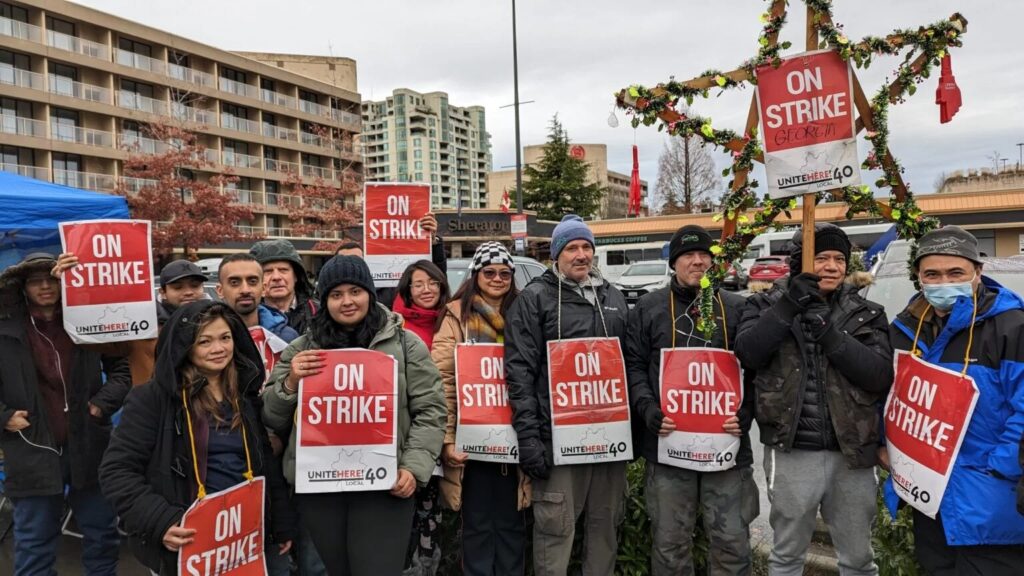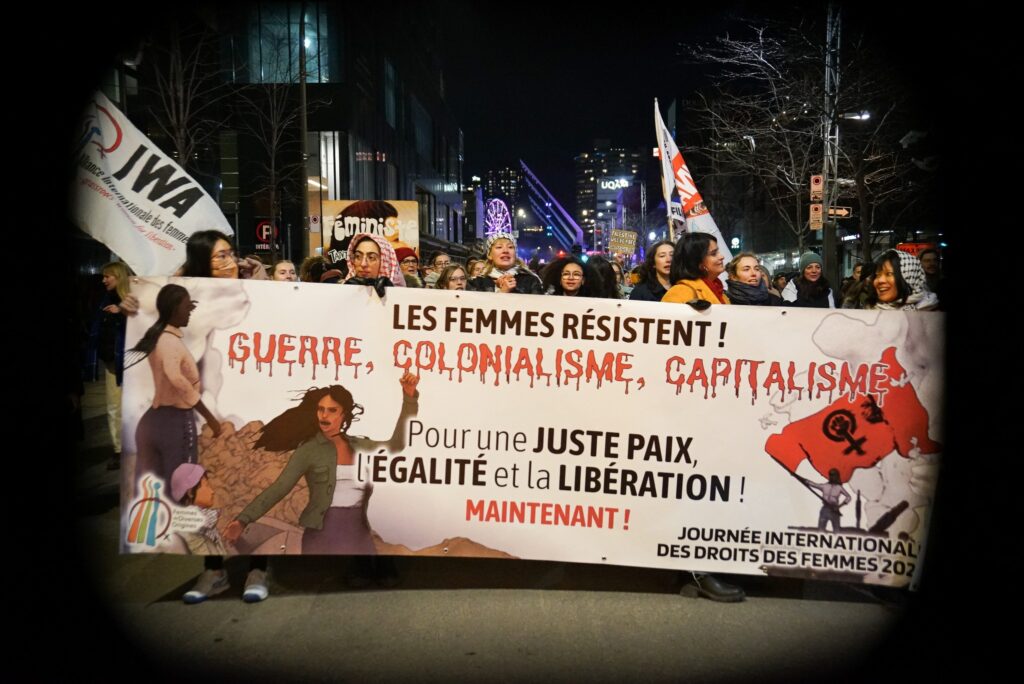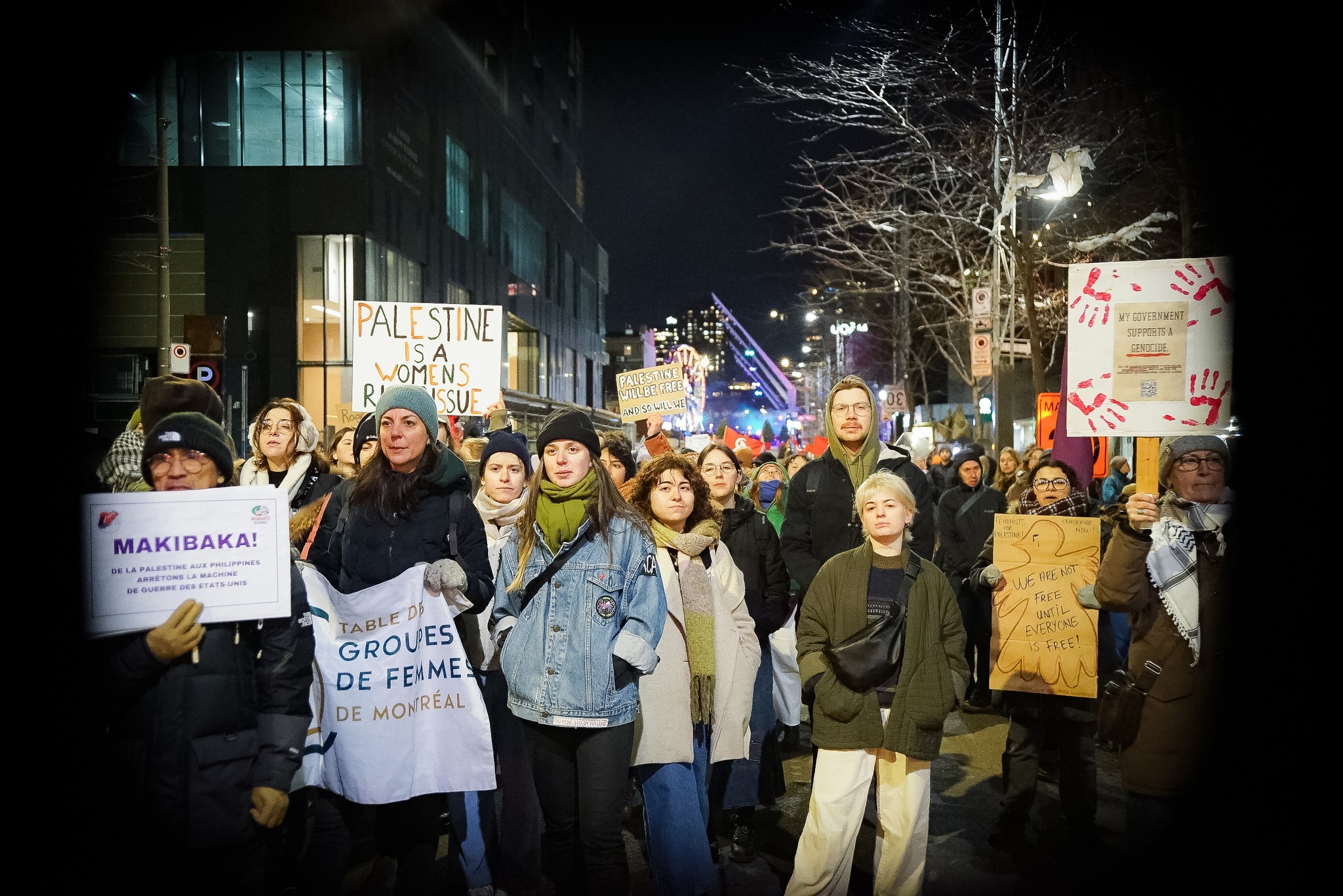This year, International Working Women’s Day saw tens of thousands of people take to the streets across Canada along with millions globally in a day that Sydney Kondruss, an International Alliance of Theatrical Stage Employees (IATSE) member, describes as “a time for women, especially women in labour… to get together and talk about various points that women struggle with in the workforce, and then to fight for our equal rights amongst our fellow men.”. North Star sent out journalists to March 8th events in different cities across the country to find out what this day means to those participating.
March 8th finds a part of its origins in 1917, when militant general strikes lead by women in Saint-Petersburg, Russia, saw thousands of women and men take to the streets to demand better working conditions and equal voting rights, an action which contributed to the fall of the authoritarian Tsarist regime and the establishment of the Soviet Union.
Marikit, a member of Gabriela Women’s Party, explained to North Star the importance of recalling this history: “When we talk about International Working Women’s Day, instead of International Women’s Day” it’s about highlighting the fact that “it is working women who are the forefront of liberation and struggle, and it is not bourgeois women and women CEOs, who are oppressing other women…”
Quebec has its own unique history of women’s struggle, with the establishment of the March of Bread and Roses in 1995 against the impoverishment of women in working class and poor communities in Quebec. Maryeve Boyer, vice-president representing women on the FTQ Board of Directors, explains its relevance today: “The Bread and Roses March is at the origin of the World March of Women of which we’ll be celebrating the anniversary next year, in 2025. I think it is a struggle that is still relevant today. We’re still making the same demands. Unfortunately, even if there have been a few advances, we can see that setbacks can happen.”
In Vancouver, Emily from United in Struggle explained to North Star what issues women are still facing in the workplace: “We’re forced into these low wage industries that are designated as ‘women’s work’, ‘care work’, ‘domestic work’, the Temporary Foreign Worker Program would be a great example, migrants who come over for work as nannies, caretakers, agricultural workers, and were put into these positions and then it’s only so the capitalists can make more money. Is by keeping us making less wages…”.
While speaking to a crowd in Winnipeg, Cambria Harris of the Search the Landfills movement, called out the provincial and federal government for their performative celebrations on March 8th “I don’t understand how these governments can claim to celebrate our women and our diversity while indigenous women are lying in trash . . . I’m sick of words with no action, I’m sick of sitting in these rooms with elites and politicians . . . Have they done anything? No!”.
In Toronto, North Star spoke to Reham, a Palestinian staff member at Durham College whose niece is currently stuck in Rafah. Rafah is located at the southern tip of the Gaza strip, where over 1.4 million displaced Palestinians from other parts of Gaza have taken refuge as it was promised to be one of the few remaining “safe-zones” from Israel’s genocidal campaign – which the Canadian government and arms manufacturers have been actively supporting. This promise was recently shattered when the Zionist regime announced an imminent ground campaign on Rafah.

Reham explained what the situation is like for her niece and other Palestinian girls and women: “She unfortunately can’t have access to the education that she always dreamed of having. We’re speaking on behalf of all the girls, and we’re looking at the international community and asking: Are you really considering us the exact same way you are considering other women of this world?”
In Montreal, when asked what historic women’s struggles inspire her, Rama Diallo, treasurer of the CSN Metropolitan Central Council answered “The one that sticks out most in my mind is the women nurses at Sainte-Justine who rebelled at one point to get a good collective agreement”. In 1963, 235 nurses of the Saint-Justine hospital in Montreal went on an illegal strike to demand better work conditions and a better recognition of the profession in general.
When asked the same question, Emily replied: “Another great example would be the Sheraton Hotel Vancouver Airport workers, a lot of women, a lot of migrants, fighting against the Lalji family for 8 months, their picket line has been so militant that I take great inspiration from their fight.”

Maryeve highlighted the role that women play in fighting for the betterment of not only their own work conditions, but those of the broader working class: “When working women fight and succeed in transforming their workplace, they do it for everyone. So, history has taught us that every time struggles were won by women, it also improved the condition of men. So it’s really important to work together to achieve this equity, this equality.”

Photo and cover credit: Women of diverse origins

Be part of the conversation!
Only subscribers can comment. Subscribe to The North Star to join the conversation under our articles with our journalists and fellow community members. If you’re already subscribed, log in.